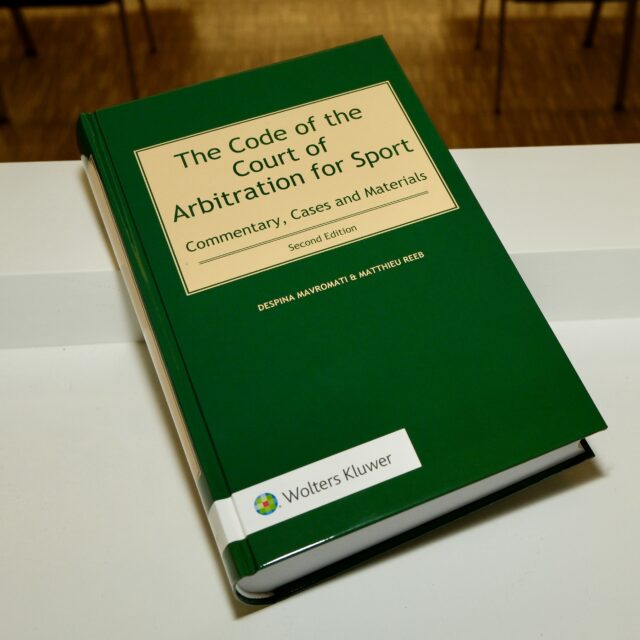4A_184/2023, judgment of 5 June 2023, A v. UCI, appeal against the award rendered by the CAS on 27 February 2023 (CAS 2021/A/7663)
The dispute involved a French female semi-professional cyclist (the Cyclist) and the International Cycling Federation (UCI): In 2020, the cyclist had filed a complaint before the Ethics Commission of the UCI against her team’s manager for sexual harassment. Her request to participate in the proceedings was denied, because according to the UCI Code of Ethics (enacted in 2018) only the persons against which a complaint was filed could participate in the procedure. Later in 2020, the cyclist forwarded to the Ethics Commission of the UCI a copy of her criminal complaint before the French authorities and requested to be informed on the disciplinary proceedings. She then received a press release whereby the case had been transmitted to the Disciplinary Commission of the UCI, which later refused to send her a copy of the decision as she was not a party to the proceedings. The UCI subsequently sanctioned the manager from any activity linked to cycling for 3 years due to sexual harassment and forwarded a summary of three pages of the decision to the Cyclist.
The Cyclist filed an appeal to the CAS, which dismissed her appeal to the merits and then a civil law appeal to the SFT, also requesting legal aid.
Before the SFT, the Cyclist first invoked a violation of her right to be heard as the minimal guarantees granted to victims of sexual harassment under Swiss law had been violated. The SFT swiftly dismissed the plea as it held that it was an effort to inadmissibly attack the merits of the award. In any event, the CAS had indeed taken into account the arguments raised by the cyclist and found that the UCI Code of Ethics did not go against imperative Swiss law. There was equally no contradiction between the fact that the sole arbitrator considered as “unsatisfactory” the refusal of the UCI to send a copy of the decision and the fact that the UCI was in its rights to do so.
Second, the cyclist invoked a violation of procedural public policy: on a preliminary basis, the SFT reiterated the strict and limited review by the SFT: accordingly, when the SFT is called to review an arbitral award rendered by a tribunal seated in Switzerland and empowered to apply Swiss law subsidiarily (like in the case at hand), it should keep the same distance as if such tribunal had applied any other law and not proceed to a full review of the interpretation of Swiss law by the arbitrators (at 6.2.1). As such, the SFT held that the pleas on the violation of procedural public policy were inadmissible to the extent that they merely intended to establish that the contested award was against a norm of Swiss law (at 6.2.2).

Third, the Cyclist invoked a violation of substantive public policy, among others a violation of personality rights of Art. 27 par. 2 Civil Code due to the UCI’s refusal to give her a copy of the decision: the SFT considered that such violation was not established to the extent that the Cyclist could still be informed of the outcome of the procedure through the summary of the decision.
The Cyclist further invoked a discriminatory behaviour as to the procedural rights to the parties of a disciplinary procedure under the UCI Code of Ethics and those granted to third non-parties to the procedure: the SFT left – again – the question open as to whether an athlete can invoke discrimination in a dispute with a private association and referred to the Semenya SFT judgment (which is currently under review by the ECtHR Grand Chamber, cf ATF 147 III 49 at 9.4). The SFT went on to dismiss such plea as unfounded, as there was no discrimination in this case and drew the difference between differentiation (“distinction”) and discrimination (at 6.3.2).
What is more, the plea of violation of the principle of human dignity of a victim which is found outside of “her own process” was equally dismissed by the SFT: according to the judgment, sports federations in Switzerland can dictate the procedural rules of their choice and the SFT can only annul a CAS award, which, by confirming said rules, reaches a result contrary to public policy. As such, the non-transmission of a disciplinary decision rendered by an association’s organs to the person that filed a complaint does not violate human dignity.
Overall, this is a rather expected judgment by the SFT, which confirmed its strict approach regarding the limited review of procedural rules of sports federations but also the inadmissibility of arguments of appellatory nature in the federal proceedings.








